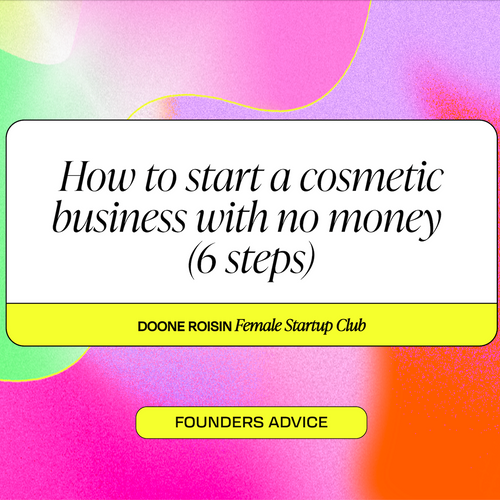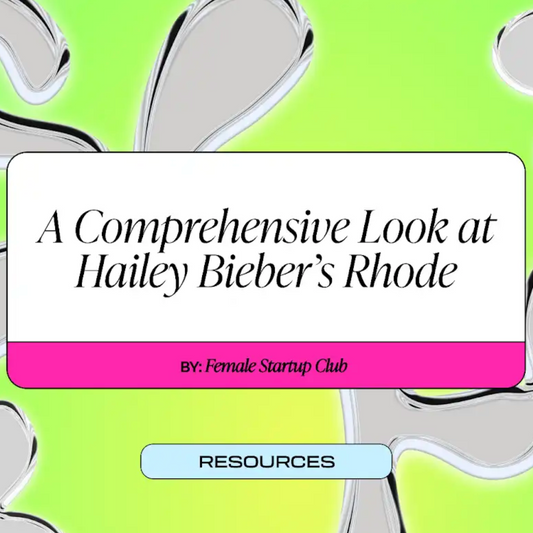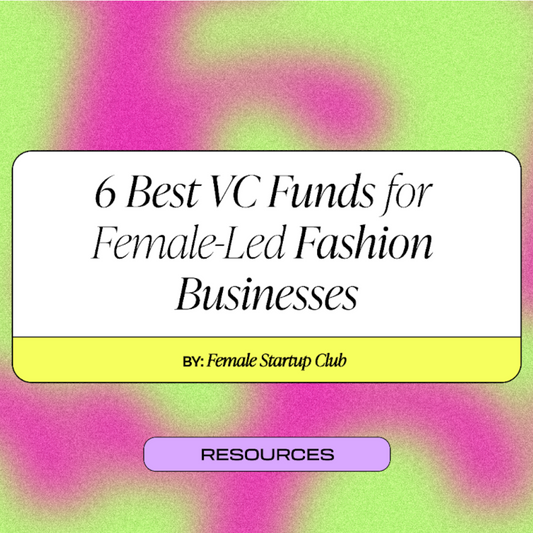On the show today I’m chatting with Tracy Tutor.
Tracy is a top real estate agent at Douglas Elliman Beverly Hills, consulting with some of the world's leading architects and developers. She is the first and only female cast member on Bravo's Million Dollar Listing LA. She is a best selling author, her book is called Fear is just a 4 letter word and now she adds wine brand owner to her resume.
We’re talking through her journey so far, the advice she has for female founders and how to have the confidence to own any room.

Tracy knows a thing or two about what it takes to succeed. "You have to have something incredibly special and different to do well," she shares. "It’s all about brand." She points to the success stories like Casamigos, which had star power and deep pockets behind it, but for every successful alcohol brand, there are many that flop. It was during a conversation with her business partners, Mallon Echlin and Lisa Ackerman, that the idea for Unsweetened was born. The duo, originally from Sweden, brought a unique perspective, noting how the U.S. wine market often relies on heavy labeling, while in Europe, there's a certain transparency that’s lacking.
Tracy believes that consumers crave transparency in their wine choices. “When I put a glass and a half of wine in my body on a Wednesday night, I want to know what I'm actually consuming,” she explains. This philosophy drives her passion for Unsweetened, a no-sugar wine brand that champions clarity and health-conscious choices without compromising on enjoyment.
The brand's message is all about education and empowerment. Tracy aims to resonate with women who might not even realize they’re looking for this kind of product. “I thought, I want to be part of something like that,” she says. “To me, transparency is key.”
Unsweetened recently had a soft launch in California, and the initial response has been promising. Tracy feels that patience is vital as they prepare for a broader rollout across the U.S. “We want to get it right. You only have one shot to launch to the entire U.S.,” she notes. This strategy reflects her understanding of the market, and she recognizes the importance of building a solid foundation before expanding.
The soft launch allows Tracy and her team to gather organic feedback and ensure they’re ready for a nationwide campaign. “I want to see it in Walmart. I want people to have access to this wine,” she declares. The brand focuses on accessibility and education, helping consumers understand what goes into their wine and why it matters.
When it comes to financing Unsweetened, Tracy approaches it with a mix of personal investment and strategic capital raising. “I’m good at raising capital,” she admits. Her experience in the real estate industry gives her insight into the importance of funding and marketing in building a successful brand. As they prepare for a full U.S. launch, Tracy emphasizes that a robust marketing budget is crucial for navigating the competitive landscape of the wine industry.
The challenges of entering such a competitive market are not lost on her. “It’s incredibly difficult. You’ve got to have a lot of capital, and you need the right team,” she advises. She emphasizes the importance of branding and sales expertise, especially in an industry that can feel closed off to newcomers.
Tracy's journey doesn't stop with wine. Her book, Fear is Just a Four-Letter Word, serves as a guide for women seeking confidence in their careers and beyond. Written during the pandemic, the book has resonated with many, particularly young women navigating their paths in traditionally male-dominated fields. "I wanted to dispel the myth that women have to follow a specific route," she shares.
The book is packed with practical advice and step-by-step strategies to help women assert themselves in any situation. Tracy encourages readers to embrace their femininity as a strength, emphasizing that genuine connections are essential for success. She acknowledges the unique challenges women face in the workplace and aims to empower them to confidently navigate those spaces.
Tracy Tutor’s story is one of resilience, innovation, and a commitment to fostering change. As she continues to make waves in real estate and the wine industry, she serves as a reminder that with the right vision and determination, it’s possible to redefine what success looks like. So, whether you’re sipping on a glass of Unsweetened or diving into her book, you can be sure there’s a story of empowerment and transparency behind it all. Cheers to that!



